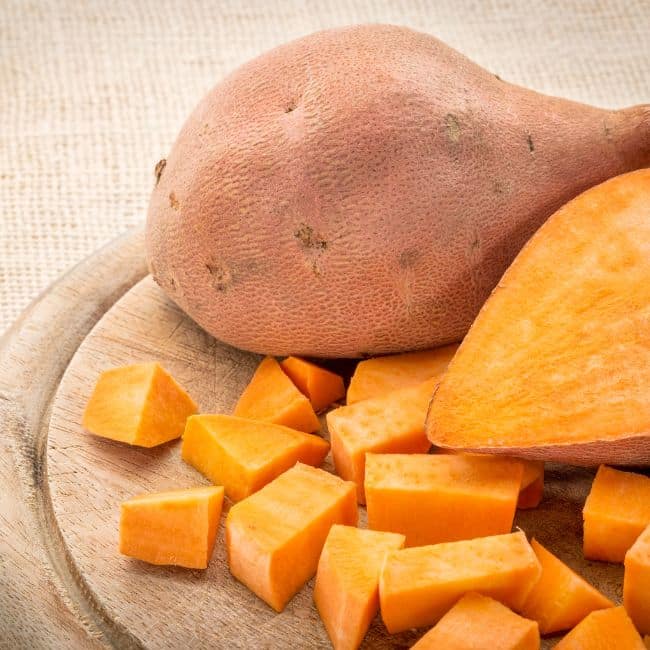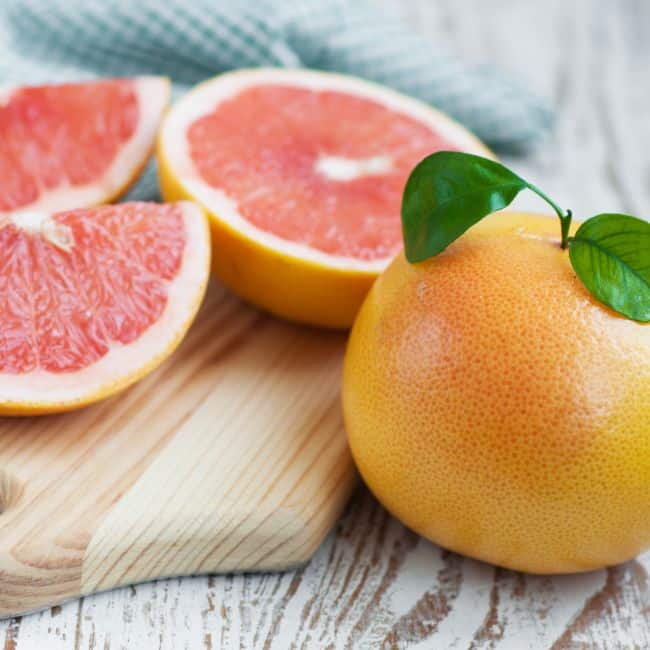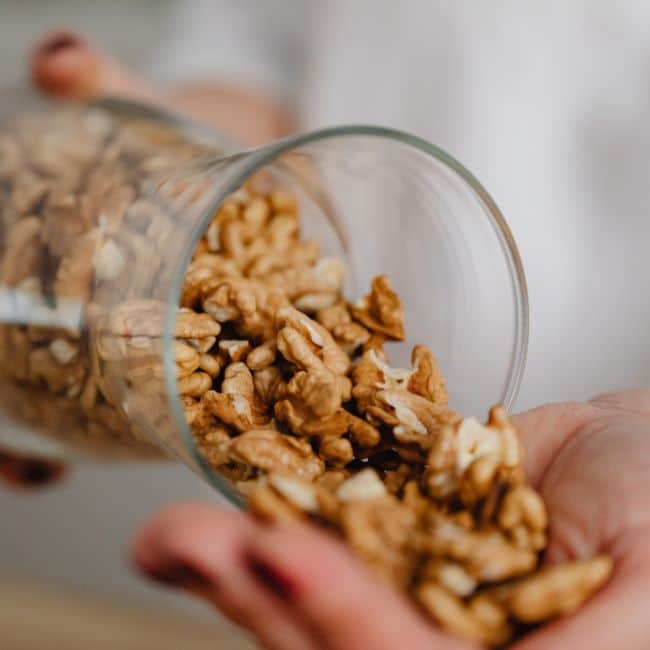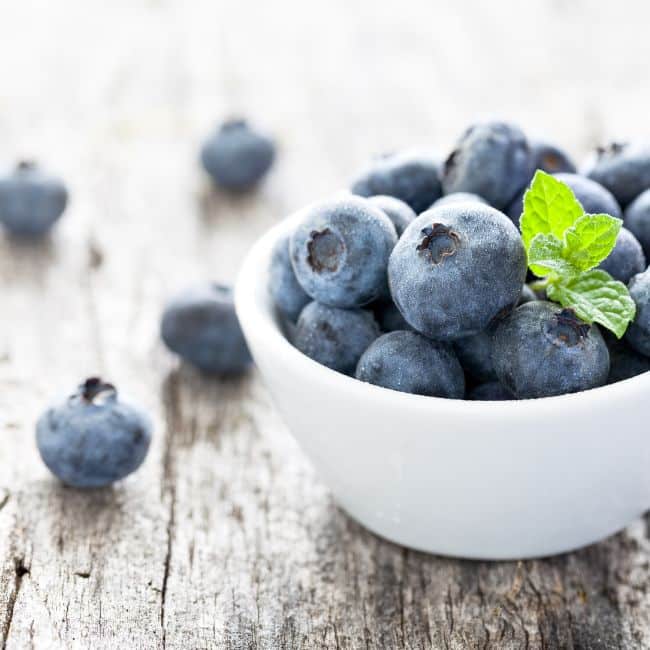Discover heart-healthy eating with our top 12 foods that lower cholesterol naturally. Boost your diet and well-being today!
When was the last time you thought about your cholesterol? It can be easy to forget about unless you’ve recently been to the doctor. Especially since high cholesterol doesn’t usually come with noticeable symptoms.
Unfortunately, the CDC stipulates that roughly 30% of American women have high cholesterol—dramatically increasing their risk for heart disease, heart attacks, and strokes.
While medication or supplements may be necessary for some situations, making dietary and lifestyle changes is often enough to manage cholesterol naturally.
High cholesterol levels can lead to the buildup of plaque in the arteries, increasing the risk of heart disease and stroke. By consuming foods that lower cholesterol, you can do your body a favor, reduce your risk of heart disease, and improve your overall health.
We’ve put together a list of the nine best foods to lower your cholesterol. But first, we’ll explain the difference between “good” cholesterol (HDL) and “bad” cholesterol (LDL).
It’s never too late to start making healthier choices to improve your health!
Table of contents
What Is Cholesterol?
Cholesterol is a waxy, fat-like substance that’s found in our cells. Cholesterol plays a crucial role in the human body, including aiding in digestion and hormone production.
However, high levels of cholesterol can lead to the buildup of plaque in the arteries, which can increase the risk of heart disease, stroke, and other cardiovascular disease problems.
“Good” Cholesterol vs. “Bad” Cholesterol
You may have heard people use the terms “good” cholesterol and “bad” cholesterol. They’re referring to HDL cholesterol and LDL cholesterol. So let’s dive to exactly what that means…
First, you need to understand that because cholesterol can’t dissolve in blood, it has to be carried through your blood vessels by lipoproteins.
There are two types of lipoproteins that transport cholesterol to and from cells: low-density lipoprotein (LDL) and high-density lipoprotein (HDL).
LDL is labeled the “bad” cholesterol because it creates plaque, which clogs your arteries. If a major clog occurs, it can result in stroke or heart attack.
The “good” cholesterol in your body is your HDL.
HDL is good because it helps remove LDL from your arteries and transport it back to your liver, keeping your arteries clear.
You also have triglycerides, which are fats carried in the blood from the food you eat—you want your triglyceride count to below, like your LDL cholesterol.
What Is Considered High Cholesterol?
According to the National Heart, Lung, and Blood Institute, high cholesterol is one of the leading causes of heart disease. And by now you probably know that heart disease is the number one killer of women in the United States.
High cholesterol itself usually doesn’t cause symptoms, so the best way to diagnose it is with a blood test at your doctor’s office called a lipid panel.
A lipid panel is usually administered after a 9-12 hour fasting window to get an accurate read of your total cholesterol.
In addition to giving you a total cholesterol reading, this will also tell you what percentage of that number is LDL (bad cholesterol) and HDL (good cholesterol) and your triglyceride count. It’s important to not only know your total blood cholesterol level but to ask your doctor to break down what amount is LDL and what amount is HDL.
Overall, a desirable total blood cholesterol level is less than 200 mg/dL. Your cholesterol may be borderline high if it is 200-239 mg/DL, and 240 mg/dL and above is generally considered high.
Again, these are guidelines for your total number; you still want to ask your doctor what percentage is HDL and what percentage is LDL. (Remember you want more HDL and less LDL!)
The Risks of High Cholesterol
When there is an excessive amount of cholesterol in the bloodstream, the excess can form plaque deposits in the arteries. This plaque buildup can cause risk factors that lead to several health problems, including:
- Coronary artery disease: reduced blood flow to the heart can lead to angina (chest pain) and heart attacks
- Peripheral artery disease: reduced blood flow to other parts of the body, often the legs or feet
- Transient ischemic attack (TIA) or stroke: caused by a buildup of plaque in the arteries of the brain
Furthermore, high levels of cholesterol can also lead to the development of gallstones and fatty liver disease.
The Importance of Lowering Cholesterol
Cholesterol plays a crucial role in the human body, including aiding in digestion and hormone production. However, high levels of cholesterol can lead to the buildup of plaque in the arteries, which can increase the risk of heart disease, stroke, and other cardiovascular problems.
Maintaining healthy cholesterol levels is essential for overall health and well-being.
Lowering cholesterol levels and reducing the risk of heart disease involves adopting a healthy lifestyle, such as increasing physical activity, maintaining a healthy weight, quitting smoking, and eating a nutritious, low-saturated fat diet.
So what’s stopping you from getting started today? Keep reading to the the best foods to lower cholesterol naturally!
12 Best Foods That Lower Cholesterol Naturally
Adding cholesterol-lowering foods to your meals is a simple yet effective way to manage cholesterol levels. Research has shown that consuming specific foods, such as oats, nuts, fatty fish, and olive oil, can help lower LDL cholesterol levels without sacrificing taste or variety.
PS. These are my favorite kitchen gadgets that will help make meal prepping and planning easier!
Here are the top foods that lower cholesterol naturally to incorporate into your diet:
1. Sweet Potatoes

Sweet potatoes are not only delicious; it turns out they’re a major source of soluble fiber, which is bad cholesterol’s worst nightmare.
Soluble fiber helps the body excrete cholesterol by binding to bile acids. Sweet potatoes are loaded with soluble fiber, especially the peel—so if you want to maximize its benefit, go ahead and eat the skin, too!
This powerful super food is also listed on the Blue Zones foods list, which highlights the diets of some of the longest living people in the world!
Here are a few sweet potato recipes to try to help lower cholesterol:
- Sweet Potato Toast 4 Ways
- Simple Roasted Sweet Potatoes
- Shepherd’s Pie with Sweet Potato Topping
- Roasted Sweet Potato Soup
- Air Fryer Sweet Potatoes
2. Oats and Barley
There’s a reason oatmeal is touted as one of the healthiest ways to start your day; it’s been proven that eating oats regularly can lower your LDL (bad cholesterol) by 5.3% in only 6 weeks.
Oats and barley are two of the most effective grains for lowering cholesterol. These grains are abundant sources of soluble fiber that can be an essential aid to achieve low cholesterol levels.
Soluble fiber helps to reduce the risk of plaque buildup in the bloodstream by reducing the absorption of cholesterol in the arterial walls.
In addition to its high soluble fiber content, oats also contain something called beta-glucan, which works to absorb LDL from the blood.
Get creative with your morning oatmeal, the health benefits go way beyond just cholesterol!
Here are a few healthy oatmeal recipes to try:
- Vanilla Raspberry Overnight Oats
- Banana Nut Oatmeal
- Apple Cinnamon Baked Oatmeal
- Overnight Pumpkin Spice Oatmeal
3. Olive Oil
Olive oil is a healthy fat that plays a big part in most Mediterranean diets, keeping your heart healthy with monounsaturated fatty acids (MUFAs), which naturally lower LDL cholesterol.
Make the switch from butter or margarine to olive oil and your cholesterol levels will thank you.
When purchasing olive oil, it’s crucial to choose high-quality, extra-virgin olive oil to reap the maximum health benefits. Extra-virgin olive oil is minimally processed and is rich in health-promoting compounds, making it a better choice than highly processed vegetable oils.
I always stay away from palm oil and canola oils.
As a bonus, healthy fats can also help you naturally lose weight.
4. Eggplant
Eggplant is loaded with fiber, which you’ve now learned is key to reducing LDL levels. Plus, the health benefits of eggplant are pretty impressive, even beyond cholesterol.
They are a great addition to any healthy diet.
Eggplant is a great substitute in many popular recipes you may already love and enjoy. Simply make the swap and enjoy great taste, plus amazing health benefits.
Here are a few eggplant recipes to try:
5. Grapefruit

Studies have shown people can lower their LDL cholesterol by up to 20% by simply adding grapefruit to their diet.
Grapefruit contains antioxidants and fiber, as well as a flavonoid called naringenin, which has been shown to prevent plaque buildup and lower both LDL cholesterol and triglycerides.
As an added bonus, grapefruit also helps increase your metabolism naturally.
6. Salmon and Other Fatty Fishes
If you want to lower your cholesterol naturally, adding fatty fish to your diet is an excellent idea. Salmon, mackerel, and sardines are all ideal sources of omega-3 fats, which are vital for maintaining overall health and well-being.
Again with healthy fats! The Omega-3 fatty acids found in salmon and other fish can boost your HDL levels (good cholesterol) in addition to ward off heart disease and dementia.
To get the most benefit, the American Heart Association recommends eating two 6-ounce servings of fish per week (particularly fatty fish) to help reduce your risk of heart disease and stroke.
Here are a few healthy salmon recipes worth trying:
7. Dark Chocolate
Ahh, chocolate. We knew you loved us as much as we loved you! Loaded with antioxidants, dark chocolate increases your HDL (good!) cholesterol levels and keeps blood platelets from sticking together.
Of course, remember everything in moderation.
For the best benefits, stick with organic dark chocolate as an occasional indulgence. This dairy-free dark chocolate ice cream might be the perfect treat to keep on hand.
8. Healthy Healthy Nuts

If you’re looking for a satisfying snack that won’t compromise your cholesterol levels, almonds and walnuts are the way to go. These heart-healthy nuts are packed with vital nutrients that can help reduce LDL cholesterol levels.
Eating peanuts, almonds, or walnuts can lower your LDL cholesterol; one study, in particular, found that a handful of walnuts per day can decrease their LDL cholesterol by as much as 10%, all while increasing their HDL, too.
Their high-calorie count means it’s important to keep portion sizes small—around one to one and a half ounces per day—to get the most benefit.
9. Garlic
Garlic is amazing for many reasons. It has immune-boosting properties and adds a burst of flavor to some of our favorite dishes.
But it’s also a great cholesterol-lowering food to stock up on next time you’re at the grocery store. Research shows it can prevent LDL particles from clogging up artery walls.
Better yet, it’s easy (and almost necessary!) to incorporate into a lot of recipes like this garlic shrimp on squash noodles, or even homemade hummus.
Try a few fresh cloves per day!
10. Avocado
If you’re looking for a delicious and nutritious way to lower your cholesterol levels, look no further than the avocado. Avocados are a superfood packed with essential nutrients, such as potassium, magnesium, fiber and a healthy type of fat.
The monounsaturated fats found in avocados can help lower LDL (bad) cholesterol levels, which reduces the risk of heart disease.
Incorporating avocado into your meals is easy – add it to your salads, smoothies or even use it as a spread on toast. Just be mindful of portion sizes, as avocados are high in calories.
A quarter or half of an avocado is a perfect serving size, depending on your nutritional needs.
Here are a few avocado recipes you might enjoy:
- Healthy Homemade Guacamole
- Avocado Egg Salad Toasts
- Creamy Avocado Salsa
- Healthy Avocado Deviled Eggs
11. Blueberries

Blueberries, often referred to as a superfood, are packed with anti-inflammatory properties and antioxidants that help fight cell damage caused by free radicals. These antioxidants have been shown to lower LDL cholesterol levels, reducing the likelihood of heart disease.
Blueberries are an excellent source of soluble fiber, which binds to and helps eliminate cholesterol from the body. Eating just one cup (148 grams) of blueberries a day can contribute to healthy cholesterol levels.
If you’re looking for a delicious way to incorporate blueberries into your diet, try adding them to your morning yogurt, oatmeal, or smoothie. They make a fantastic topping for pancakes and waffles, and can help your sweet tooth cravings without any artificial added sugar.
These are a few blueberry recipes worth trying:
- Blueberry Muffin in a Mug
- Blueberry Walnut Protein Pancakes
- Red, White and Blueberry Smoothie
- Lemon Blueberry Chia Scones (Gluten Free)
12. Beans and Legumes
Beans and legumes such as lentils, chickpeas, and black beans are excellent sources of soluble fiber, making them an effective weapon against high cholesterol. The soluble fiber in these fiber-packed foods binds to cholesterol and facilitates its elimination from the body.
Adding beans and legumes to your diet can help to improve cholesterol profiles, promote heart health, and increase feelings of fullness. The high fiber content of these foods means that they can help to stabilize blood sugar levels and regulate digestion.
Other examples of beans and legumes that can be added to your diet include kidney beans, navy beans, and pinto beans. With all of these options, it’s easy to incorporate these cholesterol fighters into your meals.
They are also a blue zone food, which means some of the oldest populations in the world eat them!
Here are a few bean and legume recipes to try:
- Black Bean and Corn Salsa
- Way Too Easy Black Bean Soup
- Healthy White Chicken Chili
- Veggie Loaded Turkey Chili
Lowering cholesterol levels is crucial for maintaining a healthy heart and reducing the risk of heart disease and stroke.
By incorporating these nine heart-healthy foods into your diet, you can naturally lower your cholesterol levels and take positive steps towards improving your overall well-being.
If you have any questions about how to incorporate these healthy foods into your diet, I recommend reaching out to your preferred healthcare provider or dietitian for support.
Remember, a balanced and varied diet rich in fruits, vegetables, and whole grains, combined with regular exercise, is essential for optimal heart health. So, make sure to prioritize heart-healthy habits in your daily routine to keep your cholesterol levels in check.
